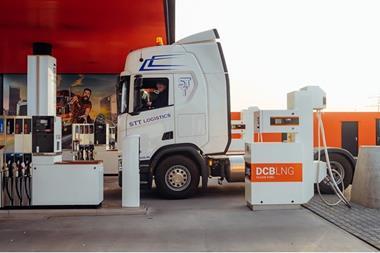Coming into June, and the first stringent phase of lockdown is lifting and being replaced by – confusion. During the initial panic the instructions were reasonably clear: stay at home other than for very limited exceptions. But moving out of that phase is proving somewhat complicated. While more of the ‘non-essential’ retail sector is opening, they are doing so while trying to adhere to various interpretations of social distancing protocols.
Of course, the petrol retail industry has stayed open throughout the crisis, although as we pointed out last month, many forecourt owners have taken a big hit. After an initial surge in shop sales they saw drastic falls in fuel volumes, compounded by a sudden drop in the value of the fuel that they were holding underground. And naturally fuel retailers were among the first to devise and implement various safety measures to protect their own staff – one of which may prove to be the lasting relic of the crisis: a ban on cash transactions.
Retailers who put up signs back in March advising customers that all sales could only be paid for by electronic means admitted that they were surprised by how little resistance they encountered from customers. Some forecourts taped ‘out of use’ signs over the screens of otherwise perfectly working ATMs, and apparently very few people complained. As one retailer put it, the sudden absence of cash on his forecourt was one of the few upsides to the crisis. Shift changes became much quicker with no cash to count; he could stop cash deliveries to his ATM and collections from the site; and could sleep a little easier knowing that the safe was essentially empty. The same retailer has no plans to resume accepting cash again in the short-term, and has yet to decide on the future of his ATM.
The timing is ironic. Just as the retail industry finally wins its long battle with the Valuations Office Agency over the treatment of ATMs for business rates and retailers are looking forward to potentially significant refunds
of business rates going back to 2010 – it’s possible that we’ve seen the first signs of cash
finally disappearing from forecourts altogether.
three reasons
From the perspective of a forecourt operator there have been three basic reasons for the presence of these machines on the forecourt: (1) the machine owners pay rent and/or commission to the retailer for having the machine on the premises; (2) the presence of the machine attracts potential customers to the site who might not otherwise go there; and (3) people withdrawing cash from the machine are very likely to spend some of it in the forecourt shop before they go anywhere else. Against these there has always been the issue of security – how many times have you looked at the news pages here in Forecourt Trader and seen yet another attack on a forecourt with a JCB, or some explosives, to try and extract an ATM?
If forecourts themselves stop accepting cash, one of those reasons above (3) disappears altogether. And if other businesses that are now able to re-open also choose to follow the same practice and discourage/ban cash transactions, the use of ATMs will decrease in general – as will the other financial benefits to be derived from hosting them. It’ll therefore be very interesting to see what happens if and when the pub trade re-opens – will operators choose the same ‘contactless only’ policy? In the end it may not matter: the decision may be made by customers who themselves decide that the new safety-conscious ‘normal’ means avoiding grubby notes and coins if they can just wave a piece of plastic to pay for their purchases.
realistic choice
We’re not suggesting that cash will disappear overnight. There are significant sections of the community for whom cash is still the only realistic choice: the elderly, for example, many of whom have either never had a bank account or credit card, or who can’t or won’t use the electronic or telephone banking associated with them. There are also a substantial number of people whose income and/or credit history is such that no bank or card company will touch them. So there will undoubtedly remain a demand for some businesses, in some areas, to continue accepting cash payments for a long time to come. But as retailers discover the convenience and improved security of cashless trading, and more of their customers want and expect it too, perhaps this really is the beginning of the end for cash.
For the latest detailed advice on payroll, VAT and other financial assistance related to Covid-19 please contact us through our website, Facebook or LinkedIn.

































No comments yet